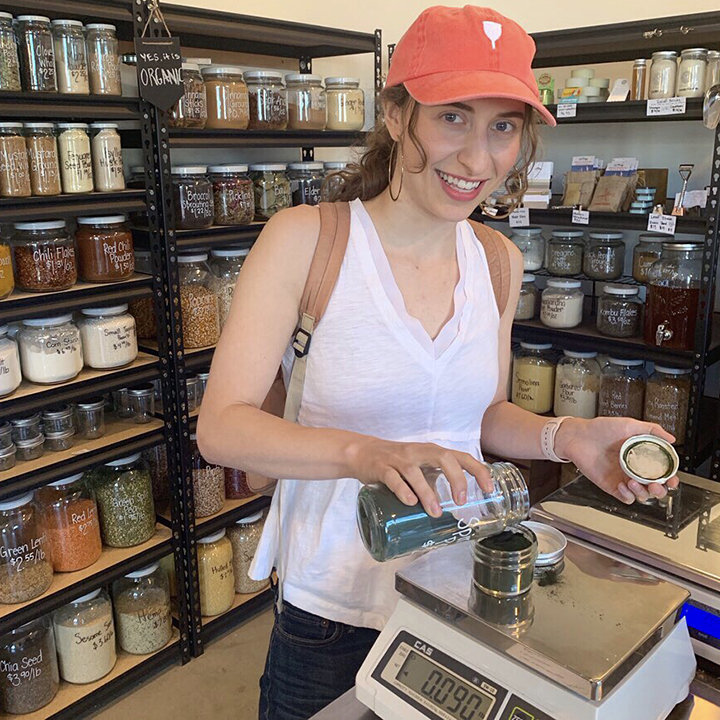Summer Hanson ’16 Promotes a ‘Zero-Waste’ Lifestyle in Seattle
This type of planning isn’t new for Hanson. As the co-owner of Eco Collective, a retail startup based in Seattle, she sells customers similar sustainable products that align with a zero-waste lifestyle.
Hanson, who studied at the Woodrow Wilson School, discovered both of her college internships through “The Environment Can Be Funny,” a part-comedy, part-environmental-studies course at Princeton. She first worked for a standup comedian who advocated for climate policy, and then for Carbon Washington, where she helped introduce the Washington State carbon tax bill, Initiative 1631. Hanson worked for the Princeton Office of Sustainability before her senior year and helped lead a campaign for donating unwanted dorm items during spring move-out.
After graduation, Hanson accepted her first job at Amazon in Seattle with the fashion and shoes division. On the sustainability team, she worked to reduce waste in her department. But Hanson still felt conflicted. “It’s hard when the goals are to sell more shoes regardless of what the impact is,” she says. Around the same time, she noticed a new movement growing throughout the city. “I had just started this job at Amazon, and the policy I had worked on in Washington didn’t pass. Things were looking pretty bleak politically, for the environment,” she says. “I was feeling a little hopeless about what could be done. It was kind of perfect timing.”
The zero-waste movement encouraged Hanson to shift her focus to the power she did have over the environment. “I might not be able to control what happens politically or what every big company does, but I can definitely control what I do in my own life,” she says.
After leaving Amazon, Hanson worked at an online publication focusing on sustainability issues, Emeradology, and soon met the original co-owners of Eco Collective at a local market in Seattle. The three became business partners as the company was preparing launching its first brick-and-mortar location.
The store specializes in kitchen, beauty, and home goods that can be sold in bulk, like shampoo and laundry detergent. Still, a zero-waste retail store is paradoxical. Hanson’s goal is to sell products while also selling customers on the idea of buying and using less. “You don’t need as many products and retailers tell you,” she says. “I’m a retailer promoting that people consume less.”
Part of this means educating people in Seattle about how they can reduce their own waste. Eco Collective hosts events and pop-ups, as do similar companies across the city. Hanson views this not as competition, but as more opportunity and access to sustainable merchandise. Her company isn’t all about selling you more things; it’s about shifting the way you look at what you already have. “We’re selling a lifestyle more than products,” she says.










No responses yet